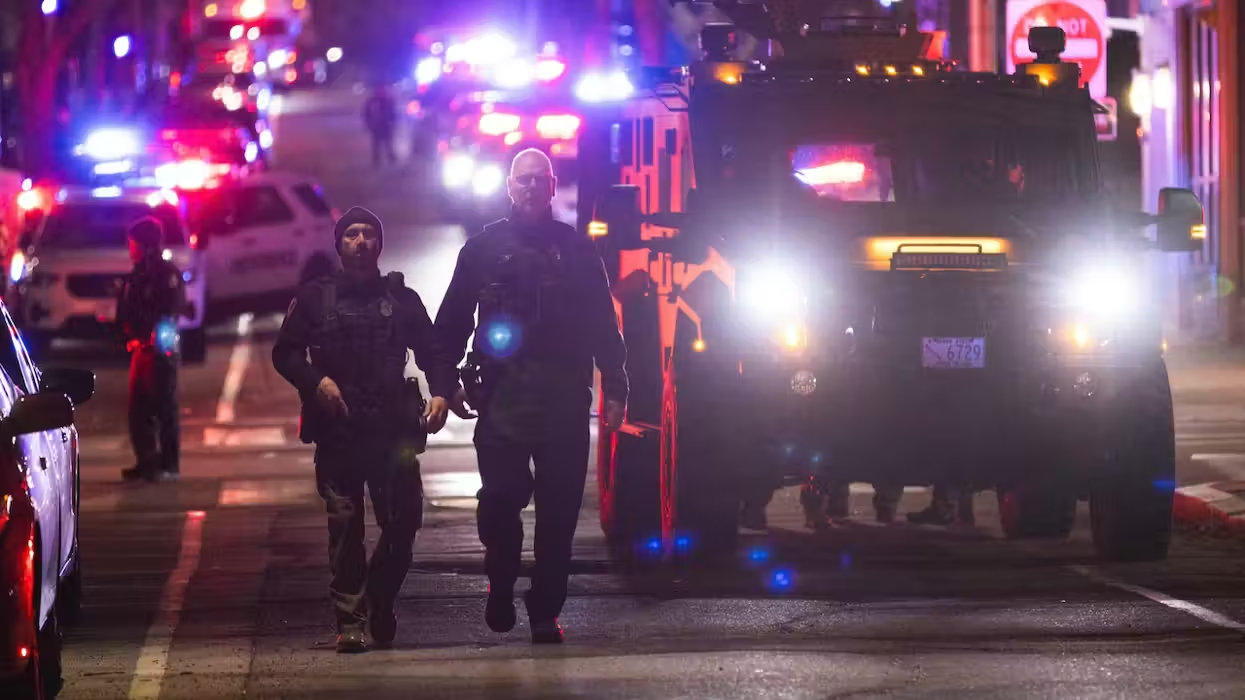© 2025 Blaze Media LLC. All rights reserved.
Ted Koppel: U.S. has provided 'unwitting collaboration' to Bin Laden
September 10, 2010
Ted Koppel's weekend Washington Post op-ed on 9/11 makes an initially shocking claim:
The goal of any organized terrorist attack is to goad a vastly more powerful enemy into an excessive response. And over the past nine years, the United States has blundered into the 9/11 snare with one overreaction after another. Bin Laden deserves to be the object of our hostility, national anguish and contempt, and he deserves to be taken seriously as a canny tactician. But much of what he has achieved we have done, and continue to do, to ourselves. Bin Laden does not deserve that we, even inadvertently, fulfill so many of his unimagined dreams. ...... But in these and many other developments, bin Laden needed our unwitting collaboration, and we have provided it -- more than $1 trillion spent on two wars, more than 5,000 of our troops killed, tens of thousands of Iraqis and Afghans dead. Our military so overstretched that one of the few growth industries in our battered economy is the firms that provide private contractors, for everything from interrogation to security to the gathering of intelligence.
That's strong stuff. According to him, we are to blame for emboldening the world's number one terrorist. We have overreacted, and by doing so, made the problem worse. There's a lot in there to respond to, but I'll limit my reaction to a few thoughts.
First, I'm not sure that bin Laden has the foresight to have planned out a grand scheme that involved as complex a response as we've seen over the last nine years. While the legend of the 9/11 plot and its hijackers has grown since 2001, I'm not convinced they (and bin Laden) are as brilliant as we give them credit for -- I think we can be guilty of trumping them up to be masterminds when that might be too generous. However, as Koppel notes, bin Laden did jump at the chance to claim that the U.S. response was all part of his master plan:
If bin Laden did not foresee all this, then he quickly came to understand it. In a 2004 video message, he boasted about leading America on the path to self-destruction. "All we have to do is send two mujaheddin . . . to raise a small piece of cloth on which is written 'al-Qaeda' in order to make the generals race there, to cause America to suffer human, economic and political losses."
I think that's the more likely scenario -- bin Laden, after all, is a terrorist, and a lie by him claiming a grander plan should not surprise us. I wish Koppel would have admitted that possibility sooner instead of in the third to last paragraph.
Second, It bothers me a little that Koppel claims to have a copy of some sort of secret terrorist manual or handbook. That's the only way I can explain why he claims that "the goal of any organized terrorist attack is to goad a vastly more powerful enemy into an excessive response." At best that's oversimplification, at worst it's wrong. I think the goal of a terrorist organization is terror. And the terrorists we are most familiar with kill innocent people in order to advance a political or religious agenda.
Third, there is a major premise of Koppel's op-ed that I agree with. The goal of our military is not nation building, democracy building, or peace keeping. The goal of our military is to secure the safety of the United States and its citizens. I'm sympathetic to his view that our national security apparatus is bloated. While some may not agree, let me assure you that my thoughts are based on founding principles. And while you will assuredly point out nuances that will cross many gray lines (I concede those points to you ahead of time), let me give you a quote that helps explain my thinking. From John Quincy Adams in 1821:
Wherever the standard of freedom and Independence has been or shall be unfurled, there will her heart, her benedictions and her prayers be. But she goes not abroad, in search of monsters to destroy. She is the well-wisher to the freedom and independence of all. She is the champion and vindicator only of her own.
Yet I will still admit an internal conflict. Terrorists are like weathermen: they don't have to be successful all the time to keep their jobs. In other words, one (or two) successful terrorist attacks by an organization is deserving of a full response. The question I'm left asking after reading Koppel's piece is: Have we overreacted or just not focused our response on the right people?
Because certainly there are some monsters that must be destroyed.
Want to leave a tip?
We answer to you. Help keep our content free of advertisers and big tech censorship by leaving a tip today.
Want to join the conversation?
Already a subscriber?
Jonathon M. Seidl is a former managing editor of Blaze News and a best-selling author and speaker. His next book, “Confessions of a Christian Alcoholic,” will be released on October 7, 2025.
Jonathon M. Seidl
Jonathon M. Seidl is a former managing editor of Blaze News and a best-selling author and speaker. His next book, “Confessions of a Christian Alcoholic,” will be released on October 7, 2025.
more stories
Sign up for the Blaze newsletter
By signing up, you agree to our Privacy Policy and Terms of Use, and agree to receive content that may sometimes include advertisements. You may opt out at any time.
Related Content
© 2025 Blaze Media LLC. All rights reserved.
Get the stories that matter most delivered directly to your inbox.
By signing up, you agree to our Privacy Policy and Terms of Use, and agree to receive content that may sometimes include advertisements. You may opt out at any time.






